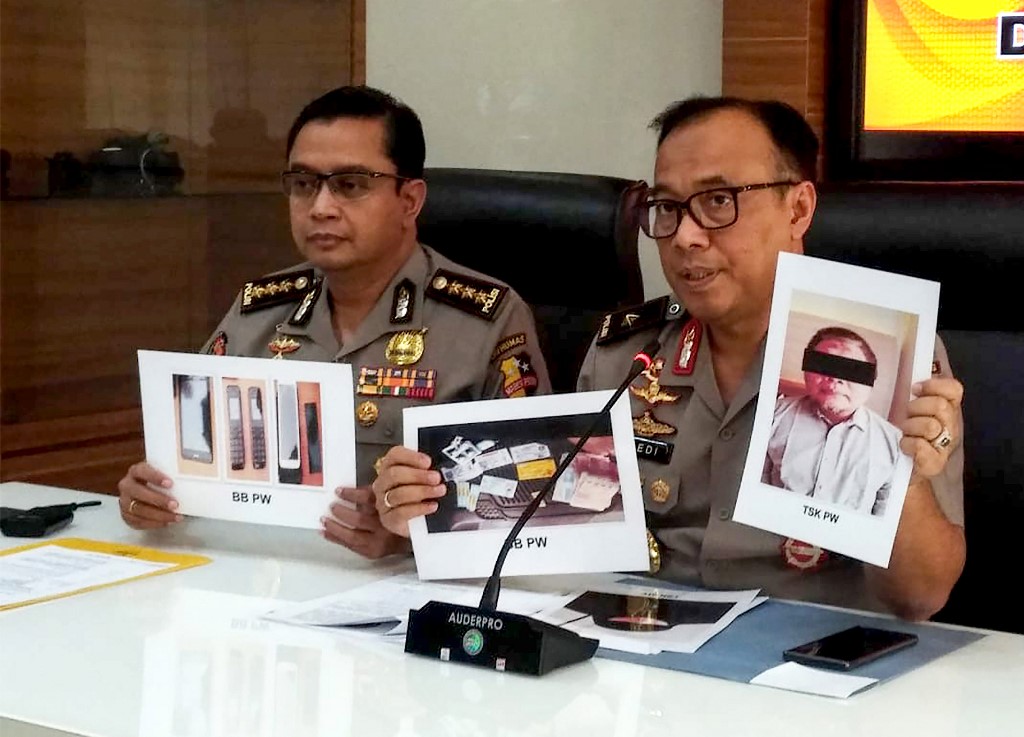Indonesian police arrested Para Wijayanto, the alleged leader of the Al Qaeda-linked extremist network Jemaah Islamiah (JI) on Saturday in Bekasi. Yesterday, police told the media that Para was funding the salaries and logistics of the terrorist group, which was behind the deadly 2002 Bali bombings, through profits from palm oil plantations.
Police said they are currently searching for the plantations controlled by Para, which are said to be located in Sumatra and Kalimantan.
“[Through the palm oil plantations] they succeeded in building the economic strength needed for their daily operations, including the salaries of structural officials,” National Police spokesperson Dedi Prasetyo yesterday as quoted by Tempo.
Dedi said some JI officials were making as much as IDR10 million (US$700) to IDR15 million per month, a significant salary for many Indonesians.
According to police, the palm oil business also allowed Para to send JI recruits to Syria for military training, although they were not sure how many people they recruited and sent abroad.
Dedi said JI’s ultimate goal was to build an Islamic caliphate state within Indonesia and the palm oil plantations were meant to generate the economic resources to strengthen their military capabilities in areas such as intelligence, cyberwarfare and explosives production. He said that JI, through their affiliation with Al-Qaeda and related terrorist networks, had already sent members to train in a variety of countries — including Afghanistan, Malaysia and the Philippines — making some of their members highly proficient at carrying out operations.
Police said that Para was a civil engineer who trained at a jihadi camp in the Philippines in 2000 and is believed to have been involved in the making of bombs used in the 2002 Bali bombings that killed 202 people as well as the 2004 attack on the Australian embassy in Jakarta that killed nine. He is said to have been chosen to take a leadership position in the group later due to his organizational skills.
The palm oil industry in Indonesia is enormous and, despite efforts by environmentalists and regulators to reign it in, continues to be a major concern of concern due to the environmental damage it can cause, compounded by difficulties in monitoring the highly lucrative, graft-ridden sector.
Al-Qaeda-linked JI was founded by a handful of exiled Indonesian militants in Malaysia in the 1980s, and grew to include cells across Southeast Asia.
A crackdown by Indonesian authorities in the late 2000s almost saw the group wiped out, according to the Institute for Policy Analysis of Conflict (IPAC).
In recent years, counterterrorism police in Indonesia have focussed their attention on Jamaah Ansharut Daulah (JAD), which has pledged allegiance to the Islamic State (IS) group.
- With additional reporting by AFP





Reader Interactions